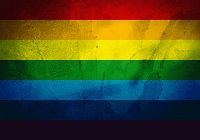Lesbian, Gay, Bisexual Adults Report Greater HIV Test Rates, Worse Health
Surveyed LGB adults also reported notably greater rates of heart conditions with more lesbian and bisexual women reporting strokes and heart attacks than heterosexual women, and more gay and bisexual men reporting chest pain related to heart disease than heterosexual men.

Although lesbian, gay, and bisexual (LGB) older adults are reported to take more preventive health measures in issues such as HIV testing, they are found to be in poorer health than heterosexuals, according to a recent study.
The data, pulled from the findings of the 2013 and 2014 National Health Interview Survey (NHIS), was comprised of surveyed answers from about 33,000 heterosexual and LGB adults, aged 50 years or older. Those years of data were the first in which the NHIS categorized participants’ sexual orientation.
According to the data researched by the University of Washington (UW) School of Social Work, more than 75% of gay and bisexual men, and about 50% of lesbians and bisexual women had received an HIV test before. Despite that rate, 15% and 17% of these groups, respectively, reported weakened immune systems.
To compare, just 5% and 10% of heterosexual men and women, respectively, reported weakened immune systems.
The surveyed LGB adults also reported notably greater rates of heart conditions with more lesbian and bisexual women reporting strokes and heart attacks than heterosexual women, and more gay and bisexual men reporting chest pain related to heart disease than heterosexual men.
These particular results are contradictory to another finding: a greater rate of LGB adults also participate in blood pressure screening.
UW social work professor Karen Fredriksen-Goldsen, PhD, noted the strong predictors of poor health are discrimination and victimization. Fredriksen-Goldsen, principal investigator of LGBT older adult health survey Aging with Pride, said the lesbian and bisexual women population tend to lack attention for its specific health issues.
"Most people think gay and bisexual men would have more adverse health effects, because of the HIV risk," Fredriksen-Goldsen said. "Lesbian and bisexual women tend to be more invisible, less often considered when it comes to health interventions.”
The significant rate of testing for HIV in older LGB adults is on par with healthcare experts’ opinions, though. Ian Frank, MD, professor of medicine at the Hospital of the University of Pennsylvania in Philadelphia, told MD Magazine the rate of US citizens unknowingly infected with HIV has much improved compared to just 5 years ago.
However, he advocates for everyone to get tested, with particular high-risk groups being “men who have sex with men, individuals with multiple concurrent sexual partners, individuals who do intravenous drugs,” among others.
Frank said fallout in the wake of a positive may be due to the assumptions a doctor makes early on in unknown infections.
“You’ve been taking care of this gentleman for many years, and you think you know their sexual habits, and you say, ‘Oh, they’re not at risk for HIV’,” Frank said. “And I think that that’s what happens.”
There may be a second degree of isolation in store for at-risk bisexual people, Fredriksen-Goldsen said. The population could be marginalized by both the gay and lesbian communities, as well as the general population, which could lead to greater rates of stress and poor health behaviors.
Such behaviors are already prevalent in LGB populations. The survey reported that lesbian and bisexual women are twice as lucky to engage in excessive drinking, among other risky health behaviors.
It remains crucial to researchers such as Fredriksen-Goldsen to seek improved health care measures and preventative systems for the older LGB community, as current studies show the 50-plus US population that identifies as lesbian, gay, bisexual or transgender may double from its approximate 2.7 million count by 2060.
The study, "Chronic Health Conditions and Key Health Indicators Among Lesbian, Gay, and Bisexual Older US Adults, 2013—2014," was published online in the American Journal of Public Health this month.
A press release regarding the study was made available.
Related Coverage